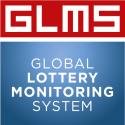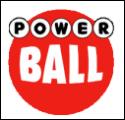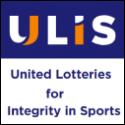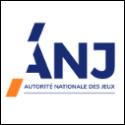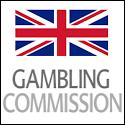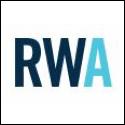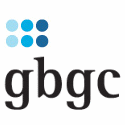Licensing and Taxation of Gambling Activities in Australia
The licensing process
i Application and renewal
Online and land-based betting is regulated at state, territory and federal level. Given that most new entrants to the market who wish to offer betting will need to apply for a Northern Territory sports bookmaker licence, the key legislation that is relevant is the Racing and Betting Act 1983 (NT). There is no limit on the number of licences that may be granted to a Northern Territory licensed bookmaker (corporate bookmaker), and the licence will permit the offering of fixed odds products into all Australian states and territories, as well as overseas jurisdictions in which it is lawful to do so.
Domestic licence types
Apart from exclusive land-based licences (which also permit online sales), the only licence types available are for a corporate bookmaker licence or an on-course bookmaker licence (with an approval to take bets over the internet).
Application process
A licence application may be submitted to Licensing NT for a sports bookmaker licence by a locally incorporated entity (generally a proprietary limited company) or an overseas entity that is registered in Australia as a foreign body.
An application for a corporate bookmaker licence is completed utilising a paper-based form or alternatively online. The application form itself is a relatively brief document; however, the supporting documentation required is substantial. As part of the application process the applicant is required to provide information in respect of all persons who are on the board of directors of the applicant, shareholders (with probity conducted on those who hold at least 10 per cent of the shareholding, either directly or indirectly) as well as key management who will be associated with the business.
In determining whether to grant or refuse a licence, Licensing NT must have regard to whether the applicant:
- is of good repute, having regard to character, honesty and integrity;
- is of sound and stable financial background;
- has or has arranged a satisfactory ownership, trust or corporate structure;
- has or is able to obtain financial resources that are adequate to ensure the financial viability of the business proposed to be conducted and to obtain the services of persons who have sufficient experience in the management and operation of the business;
- has sufficient business ability to establish and maintain the business proposed to be conducted; and
- has any person to be involved in the management or operation of the business proposed to be conducted that has any association with any person, body or association who or which, in the opinion of Licensing NT, is not of good repute having regard to character, honesty and integrity or has undesirable or unsatisfactory financial resources.
In addition, Licensing NT will have regard to whether each director, partner, trustee, executive officer and secretary, and any other officer or person determined by Licensing NT to be associated or connected with the ownership, administration or management of the operations or business of the applicant, is a suitable person to act in that capacity.
The detailed information required of applicants includes all typical probity information, as well as at least three years’ audited financials. Where the applicant is a start-up company, Licensing NT will require evidence that adequate financial resources or funding are available as required. This will typically involve the applicant demonstrating that it has sufficient financial resources and will fund the applicant in relation to its business operations.
Licensing NT will require applicants to (among other things):
- establish a place of business in the Northern Territory (often licensees have a second office in another jurisdiction (typically Melbourne or Victoria));
- demonstrate that they will provide a net economic benefit to the Northern Territory;
- provide a bank guarantee of generally AU$200,000;
- obtain full systems approvals as a requirement of being issued the licence.
More recently an applicant will need to demonstrate a point of differentiation to other existing licensees (in terms of, among other things, proposed product, marketing or other initiatives, in order to be favourably considered for a Northern Territory licence.
The application process typically takes six to nine months but can sometimes take longer.
ii Sanctions for non-compliance
Gambling businesses can incur sanctions for breaching their licence conditions or breaching legislation, or both. This will often vary depending on three factors:
- The licensing body: some states and territories have multiple bodies that can issue licences. The possible sanctions imposed would depend on the framework these bodies operate in and the rules that they impose on bookmakers. For example, in NSW there is both Racing NSW and the Greyhound Welfare Integrity Commission who can issue bookmaking licences.
- Conditions of licence: generally, regulators impose a set of general conditions on their licensees. However, provisions generally exist allowing the regulating body to impose additional licence conditions where they see fit.
- Jurisdiction: the jurisdiction in which a bookmaker is licensed is also relevant to possible sanctions, and the types of conduct that give rise to sanctions can differ depending on the laws of that jurisdiction.
For the sake of brevity, we have not itemised each of the eight state and territory jurisdictions and how sanctions can be applied.
At the federal level, breaches of the IGA carry significant penalties. For example, breaches of certain provisions can result in a civil penalty of up to 7,500 penalty units for individuals (A$1.665 million) or five times that amount for corporations (A$8.325 million).
It is important to note that the IGA is stated expressly to have extraterritorial effect (i.e., it applies to overseas operators who breach the IGA by offering prohibited gambling services into Australia). The ACMA has the power to notify international regulators of contraventions of the IGA by their licensees.
Individuals
Generally, liability is placed on the gambling provider to comply with the various legislative requirements, rather than the customer. However, in some limited circumstances, a customer can also be held liable. For example, in Western Australia, individuals can be penalised if they are a minor who places a bet (see Section 22 of the Betting Control Act 1954 (WA) (BCA)) or if they place a bet on an Australian race with an operator who is unlicensed (see Sections 23 and 24 of the BCA).
Directors and officers
There are some situations where the criminal conduct of the gambling entity is extended to the directors or officers of the company. For example, under Section 53 of the Unlawful Gambling Act 1998 (NSW), directors or officials also commit an offence if they aided, abetted, counselled, procured, incited or conspired with others to commit the criminal offence of the gambling entity.
At the federal level, an example is that the ACMA can notify border protection agencies of the names of directors, principals and officers of operators acting in contravention of the IGA. These names may then be placed on a movement alert list, thereby disrupting any travel to and from Australia. In addition, there are ancillary liability provisions that mean that in certain circumstances those individuals who aid, abet, counsel, procure, incite or conspire with others to breach the IGA will incur a civil penalty as if they had breached the IGA themselves.
Agents
There are certain situations whereby persons who aid or abet criminal activities also commit a criminal offence. At the federal level, the ACMA’s compliance priorities 2021–22 indicate a focus on affiliate services – websites that advertise or promote online gambling services and provide links to them. This focus means that the ACMA will target affiliate services that are breaking advertising laws or helping to provide illegal gambling services in Australia. The discussion above relating to ancillary liability provisions would also likely capture directors, officers and principals of these affiliate services. At the state or territory level, some advertising restrictions also capture the publication of advertisements by marketing affiliates utilised by licensed operators.
Payment processors and ISPs
As stated above, there are certain situations whereby persons who aid or abet criminal activity are at risk of committing an offence themselves. This also extends to those involved in money transfers in certain situations. There are currently no legislative requirements placed on ISPs to implement geo-blocking or other similar measures to prevent Australians from accessing illegal or unlicensed gambling content.
However, the ACMA has the power to request that ISPs block access to offshore online gambling operators it considers to be operating illegally in Australia (see Section 313 of the Telecommunications Act 1997 (Cth)). The ACMA also maintains a list of the illegal websites it has blocked and publishes this on its website. As of 21 September 2022, there have been 614 gambling and affiliate websites that have been blocked by the ACMA. Additionally, the ACMA also publishes a list of approved operators that hold an Australian licence to assist Australian consumers who are gambling online to make informed decisions.
Taxation
The state and territory taxes that apply to gambling products depend upon the relevant licence under which the product is being offered, the type of product and the jurisdiction in which the product is offered.
State and territory taxation on casinos is determined on a case-by-case basis (typically during negotiations with the relevant state or territory government at the time). By way of example, putting aside a federal company tax of either 25 or 30 per cent on profits and a goods and services tax (GST) of 10 per cent on gross revenue, the sole casino licensee in Victoria paid a multi-million-dollar licence fee to the state for the right to operate the only casino. In addition, that licensee currently pays the state a tax of 21.25 per cent of its gross gaming revenue from table games and 31.57 per cent of its gross gaming revenue from gaming machines in respect of regular players, together with a 1 per cent community benefit levy. The sole casino licensee also pays a tax of 9 per cent on high roller gaming revenue, together with a 1 per cent community benefit payment. Finally, the sole casino licensee pays an additional casino super tax based on gross gaming revenue, which increases depending upon gaming revenue levels, with a maximum tax payable of 20 per cent. The relevant taxation amounts are reduced by the GST paid by the casino licensee in relation to these services.
In relation to retail wagering in Victoria, NSW and Queensland (by way of example):
- the current totalisator commission (take-out rate) charged by the relevant licensee in respect of key licences in Victoria, NSW and Queensland varies depending upon bet type, but may be up to 25 per cent with a maximum rate of 40 per cent in Victoria for international pooling;
- the previous wagering and betting tax payable by the retail wagering licensee in Victoria has been replaced by a 10 per cent point of consumption tax (POCT) on net wagering revenue exceeding a threshold of A$1 million in respect of all bets placed by Victorian residents through the retail wagering licensee, Corporate bookmakers and other relevant betting operators licensed in Australia. This framework (with an initial rate of 8 per cent, which changed to 10 per cent on 1 September 2021) commenced on 1 January 2019;
- the current tax rate applicable to the NSW retail wagering licensee on totalisator commissions is 7.6 per cent on fixed-odds racing, 4.38 per cent of net earnings on sport and 10.91 per cent of net earnings on computer simulated racing;
- the NSW government has imposed a 15 per cent POCT (previously 10 per cent) on net wagering revenue exceeding a threshold of A$1 million in respect of all bets placed by NSW residents through the retail wagering licensee, corporate bookmakers and other relevant betting operators licensed in Australia. The wagering and betting taxes payable in NSW by the relevant retail wagering licensee prior to the introduction of the POCT have remained in place (unlike, for example, in Victoria and Queensland), with corresponding POCT offsets; and
- the wagering and betting tax previously payable by the retail wagering licensee in Queensland has been replaced by a 20 per cent POCT (previously 15 per cent) on net wagering revenue, exceeding AUS $300,000 in respect of all bets placed by Queensland residents through that licensee, corporate bookmakers and other relevant betting operators licensed in Australia. This framework commenced on 1 October 2018.
In addition to Victoria, NSW and Queensland, all states, and territories other than the Northern Territory have introduced a POCT in respect of bets placed by their residents (which is payable by the retail wagering licensee, Corporate Bookmakers and any other relevant betting operator licensed in Australia, irrespective of the location of the relevant entity). This is a departure from the previous ‘point of supply’ regime, under which states, and territories derived no betting tax revenue from corporate bookmakers and other licensed betting operators taking bets online in the relevant jurisdiction. The POCT rates for these other jurisdictions are currently 15 per cent (or 20 per cent in the case of the Australian Capital Territory) of net wagering revenue or some other similar revenue base, with various compensatory arrangements in place to ensure that the racing industry is not adversely impacted. Victoria, NSW and Queensland also have similar compensatory arrangements.
Retail wagering operators, corporate bookmakers and on-course bookmakers are also required to pay race field fees or product fees to race controlling bodies and sports controlling bodies, respectively, in relation to bets taken on their product. These fees are generally a percentage of turnover, or the greater of a percentage of turnover and gross margin, and depend upon the relevant product.
Lotteries are subject to relatively high state and territory taxation rates. For example, in the key states of Victoria, NSW and Queensland, respectively, the rates are 79.40 per cent of player loss where GST is payable and 90 per cent of player loss where GST is not payable, 76.918 per cent of player loss (player subscriptions net of prize liability) less GST payable on subscriptions and sales commissions, and 73.48 per cent of monthly gross revenue for declared lotteries (with lower rates for instant scratch-its and soccer pools). By contrast, taxation of keno across the same three key states is 24.24 per cent of player loss (i.e., net keno revenue, including GST, from keno players located in Victoria at the time of playing keno), 8.91 per cent of player loss (increasing to 14.91 per cent where player loss exceeds A$86.5 million) and 29.40 per cent of monthly gross revenue after deducting any casino commissions. The various states also set minimum player returns.
State and territory taxes on gaming machine revenue are complicated and vary significantly. By way of example, in Victoria, where the average revenue per gaming machine is greater than A$12,500 per month, the tax rate is 54.20 per cent.
There is also a federal goods and services tax of 10 per cent payable on net revenue from gambling products; however, state and territory taxation rates sometimes take this into account, and it is offset against taxation payable to state and territory governments.
By: Alexander Norrish, Alexandra Hoskins, Daniel Lovecek and Julian Hoskins
Tags: Australia, Betting and gambling activities, Licensing and Taxation


















